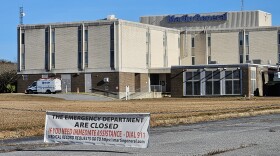According to the American Stroke Association, strokes are the fifth leading cause of death in the U.S., and rates are substantially higher in Black Americans compared to white people.
But, a Duke Health study shows that Black Americans are not getting assessed properly for stroke risk because the right questions are not being asked by current artificial intelligence models used by health professionals. Researchers evaluated different algorithms used in these prediction models to look at several risk factors, like age, blood pressure and cholesterol, and then created a probability of what types of people would be at risk over the next 10 years.
Michael Pencina is a professor of Biostatistics and Bioinformatics at Duke University and the director of Duke AI Health. He said the data collected needs to take into account the patient's situation, like where they’re born, live, and work, because it can cause unfair treatment.
“So I think adding the patient voice into the process of risk assessment, into preventive strategies, into engagement and awareness is critical,” said Pencina. “We need to work with these patients and engage.”
Pencina said updating current medical standards is important. That includes improving data collection procedures and expanding the pool of risk factors for strokes.
“We can design preventive strategies that are not as onerous as having to have the patient go see the doctor, get laboratory measurements, and just do an interview," he said. “Ask a patient a number of questions, calculate the risk, and then decide those are the higher risks.”
Pencina said he hopes to collaborate with community-based organizations to collect unbiased data to make treatment decisions more equitable.







